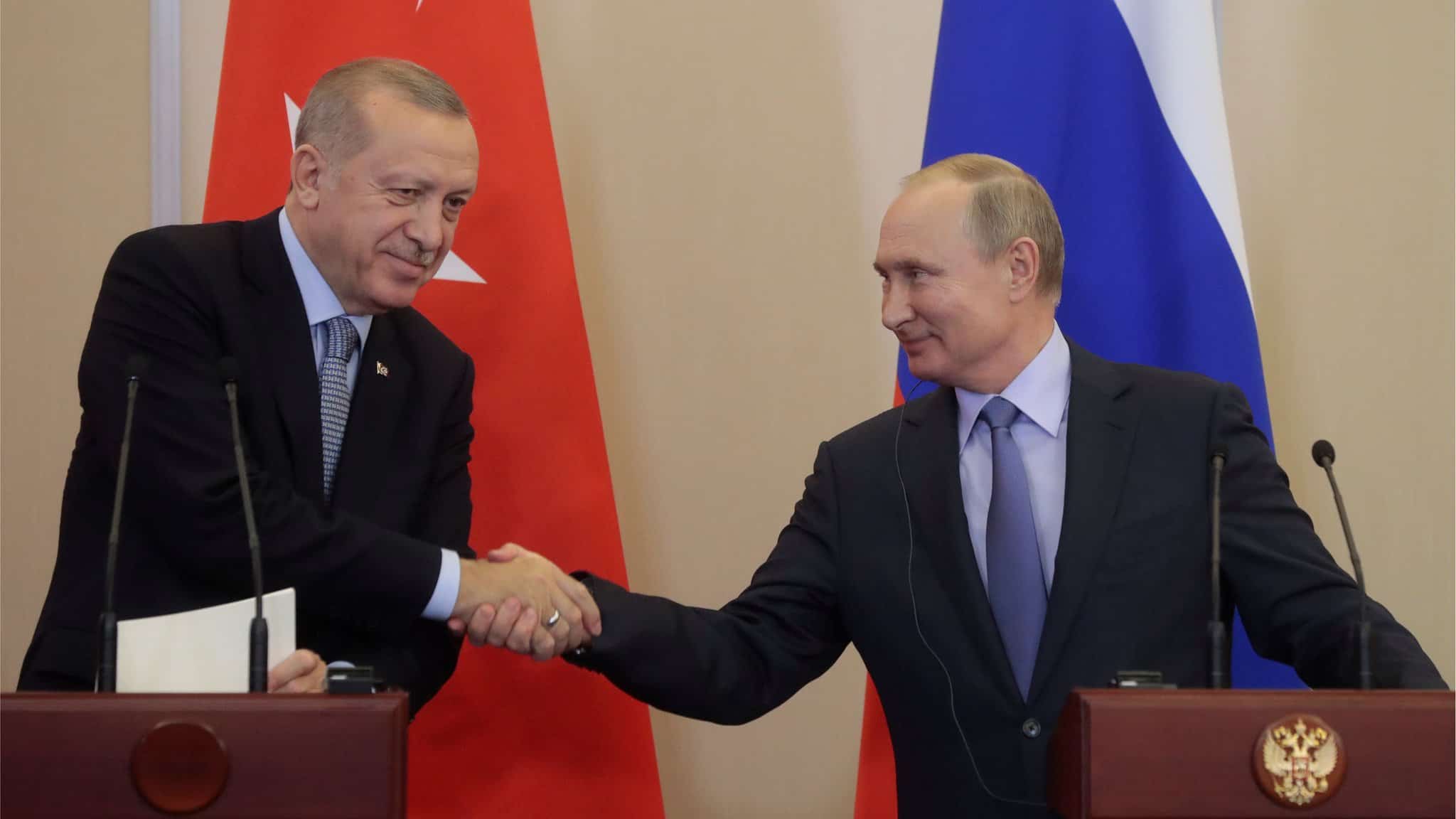Speaking in an interview with the website of the Strategic Council on Foreign Relations, Morteza Makki commented on Moscow-Ankara relations and said: Turkish-Russian relations have undergone different developments in comparison with the past; Turkish President Recep Tayyip Erdogan has sought to establish extensive ties with Russia in various political, economic and security fields, which goes back to the type of behavior and relations that Turkey has with the United States and a set of European countries.
According to the expert, Ankara’s relationship with Moscow has been more of an opportunistic relationship for Turkey to expand its influence in the Middle East region and gain concessions from the United States and its European partners in NATO. Turkey’s relations with Russia and the Islamic Republic of Iran in Syria are the culmination of its cooperation with Moscow; that is after Turkey changed its approach in Syria in retreating from the policy of overthrowing the government of Bashar Assad.
Noting that tensions between Turkey and the United States and European governments had risen sharply since the 2016 coup, Makki said: Erdogan tried to establish a balanced relationship between Russia and the nature of its relations with the West by approaching close to Moscow.
The expert on Europe affairs stressed: Ankara’s relations with Moscow have been opportunistic and tactical; because Turkey is well aware that the country’s economic and security ties with the West are so deep and extensive that Russia is unable to meet Turkey’s needs and reduce its dependence on the West.
Further elaborating, he said: Turkey’s relations with the West are strategic, and the European market is the largest market for Turkish industrial and agricultural products. For this reason, Turkey’s view of and relations with Russia should be considered as tactical, as Ankara sees the future of its economic, military and security relations with the West, not with Russia. Of course, at the same time, Turkey, as a regional power, is trying to remain an active player in the region.
Makki further added: Turkey is trying to establish relations with the countries in the Black Sea region in order to be recognized as a regional power there; a policy that, contrary to the Kremlin’s approach, is in this region.
Referring to recent tensions over the sale of drones to Ukraine, he said: Turkey’s efforts to strengthen ties with Ukraine have always been faced with sensitivities of Russia. For this reason, Russia, in the face of its conflicts with the West, is trying to make the most of Turkey politically, economically and security-wise, and Turkey is behaving opportunistically in its relations with Russia.
The expert continued: Therefore, the two sides, in places where their relations and interests confluence, try to make the most of the levers they have to put pressure on the other side.
Regarding the ban on the import of some agricultural items from Turkey to Russia, he said: Russia supplies a large part of the food and agricultural needs from Turkey, especially after many European governments, such as Poland, boycotted export of food and agricultural products to Russia. Today, however, we see that Moscow has banned the import of some agricultural items from Ankara in response to Turkey’s measure in selling drone to Ukraine. In this regard, it should be noted that the market of agricultural products and foodstuff is diverse, and Russia has the opportunity to easily meet its agricultural and food needs from other countries.
As for Iran’s role-playing in such an atmosphere, he emphasized: The market of Russia and Central Asian countries in the field of food and agricultural products has been a competitive market between Iran and Turkey, and given this competitive market, Russia can easily get the products it needs from Iran, whose prices are also lower than Turkey. For this reason, now there is an opportunity for the Islamic Republic to make the most of it.
In conclusion, referring to the current outlook for tensions between the two countries, Makki said: The tension between Russia and Turkey over the sale of Turkish drone to Ukraine is not expected to turn into a serious dispute between the two countries. Because both Vladimir Putin and Recep Tayyip Erdogan have serious tensions with the United States and European governments in various political, security and military spheres, and the presidents of the two countries are well enjoying capabilities of each other in the process of managing tensions with the United States and European governments. Therefore, it is very likely that the two sides will reach a compromise on this issue or they will pass by it.










0 Comments